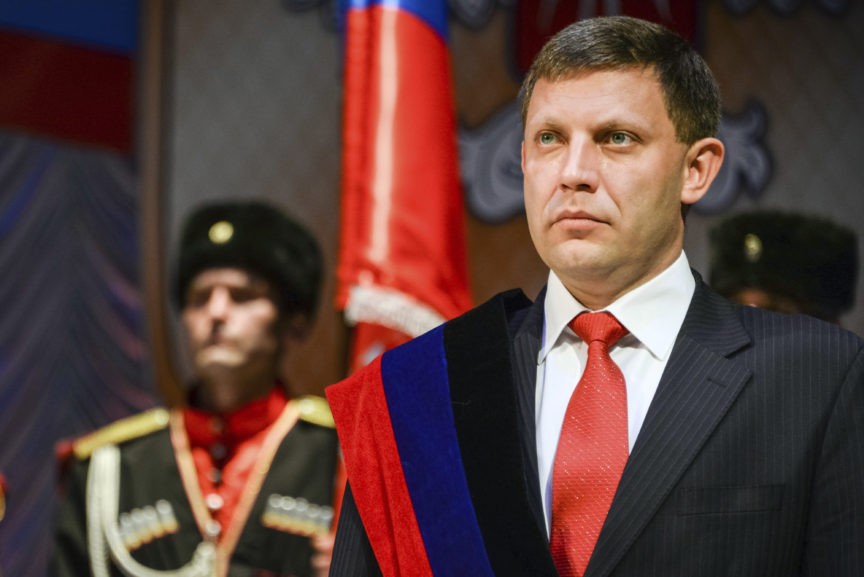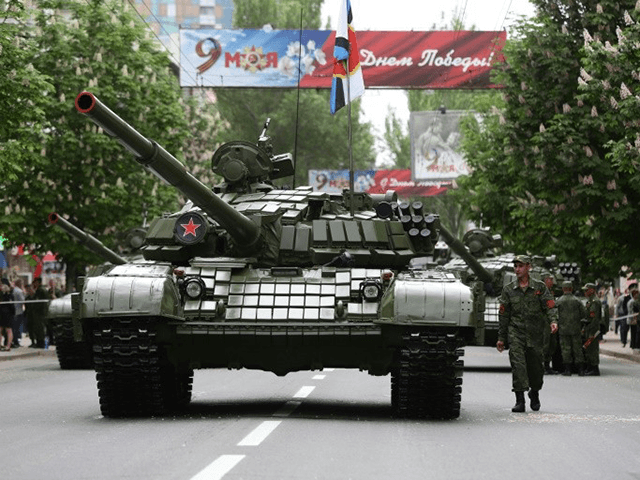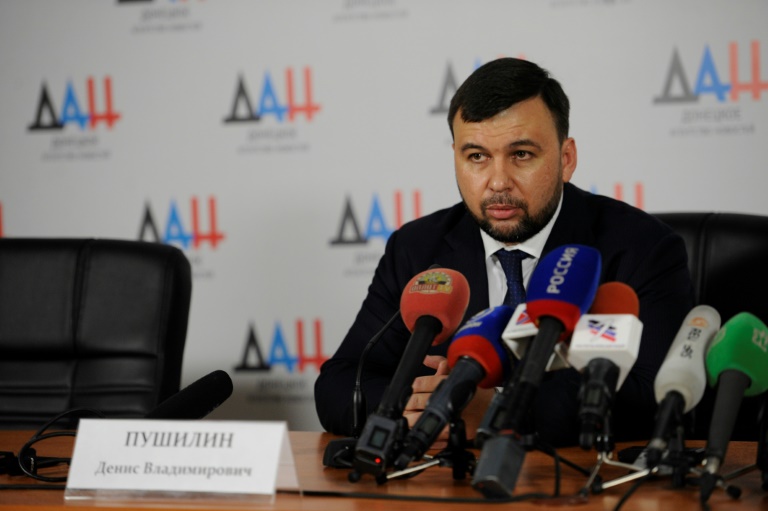Denis Pushilin, the leader of the Russia-backed Ukrainian separatist “Donetsk People’s Republic,” warned supporters of Kurdish independence not to rely on support from America or the West because “they won’t respect their promises,” unlike, he claimed, Russia.
Donetsk and Luhansk collectively make up the Donbas region of Ukraine. Pro-Russian groups in both areas have proclaimed themselves the leaders of sovereign “people’s republics” and been at war with the Ukrainian military since 2014. In late February, Russian leader Vladimir Putin announced that he would recognize Donetsk and Luhansk as countries independent of Ukraine and launched an ongoing war on Kyiv that he claimed was necessary to eliminate its “Nazi” government. The Ukrainian government is led by President Volodymyr Zelensky, a democratically elected leader who has rejected “Nazi” accusations by noting that he is Jewish, lost family in the Holocaust, and counts World War II veterans among his ancestors. Political observers considered Zelensky the “pro-Russian” candidate in the 2019 Ukrainian presidential race.
Pushilin rose to power in Donbas in 2018, after his predecessor atop the separatist Donetsk “government,” Alexander Zakharchenko, died in a car bombing that Ukrainian authorities blamed on the Russian government.

In this Tuesday, Nov. 4, 2014 file photo, rebel leader Alexander Zakharchenko stands during a swearing in ceremony in Donetsk, Ukraine.(AP Photo/Mstyslav Chernov)
Pushilin addressed the Kurdish communities of the Middle East in an interview with the Kurdish news outlet Rudaw, based in Iraq. Kurds have established a wide variety of political and paramilitary organizations throughout the region, the most powerful of which is the Kurdistan Regional Government (KRG) of Iraq. The United States has long supported the KRG and its armed forces, the Peshmerga, as well as built alliance with Syrian Kurdish leaders in groups such as the People’s Protection Units (YPG/YPJ). During the war to eliminate the Islamic State, Kurdish fighters led a coalition known as the Syrian Democratic Forces (SDF) that cooperated close with American troops to liberate the “capital” of the “caliphate,” Raqqa, from ISIS control.
Kurds in both the KRG and Syrian groups have expressed frustration with Washington since the fall of the “caliphate,” as the U.S. mission ended and America did not intervene against Turkish forces that have subsequently invaded parts of Iraq and Syria to fight against Kurdish groups. Turkey and America are both members of NATO.
Asked to address Kurdish people, Pushilin told Rudaw that Russia was a reliable ally to establish sovereignty, unlike the United States or the greater West.
“It is very important to pick up the right ally, because during the long course of this process, the ally plays a significant role. We are witnessing now Russia and the Russian authorities are fulfilling all their duties, especially when it comes to foreign policy,” Pushilin said, “So long as their partners fulfil their duties, Russia will respect the promises made. That is why one should help those states who have a clear and public policy and any cooperation is based on mutual interests.”
“The western countries including the United States and Britain, showed that they won’t respect their promises, and we can now see what is happening in the world,” he continued. “We can see that the war to control the energy resources continues, and that the interests of other countries and other peoples are out of consideration – including the Kurds.”
Asked directly if he supported the creation of a sovereign Kurdistan – an aspiration of many Kurds but widely rejected by Turkey, Iran, Iraq, and Syria, all of whom count part of their land as traditional “Kurdistan” – Pushilin did not answer yes or no directly. He noted instead that international law protects both the “right to self-determination” and the “territorial integrity of the states,” which are inherently “contradictory.”
“Which one of these two articles is the essential one?” he asked. “I believe the right to self-determination should be the essential one, and the people should have the right to make their own decisions.”
Elsewhere in the interview, asked by the 2017 KRG referendum on forming a sovereign state, Pushilin said that the West did not support it because its leaders “use all other nations for their own interests.”
“The plight of other people and nations is not interesting for them, is meaningless to them. They either control their territories or look at them as their colonies. They look at such nations with the prism of their interests,” he said.
Pushilin did not directly weigh in on how Russia views the world in the scope of that remark.
The KRG organized a referendum asking residents if they would like to secede from Iraq in September 2017, shortly after the fall of the Islamic State. Kurdish leaders contended that, having participated directly in the liberation of much of Iraq from the Islamic State, they were in a position of power to make the claim that they could run a more efficient state than Baghdad. The Kurds extended the referendum to Kirkuk, a multiethnic city that was not originally part of the KRG but became so when the Peshmerga kept it from falling into ISIS hands (the Iraqi military fled). In response, Iran-backed militias known as the Popular Mobilization Forces (PMF) launched an assault on the KRG that resulted in it losing Kirkuk and other significant population centers. The United States under President Donald Trump opposed the referendum, as did most of the West.
In Syria, the post-ISIS landscape resulted in a Turkish invasion of the country opposed by both Kurdish forces and the regime of pro-Russian dictator Bashar al-Assad, who has traditionally not allied with the Kurds as the latter also seek to form an independent state. The SDF made tentative agreements with Assad and Russian forces in response to the onslaught from Turkey, while Trump refused to get involved.
“The United States has been the Kurds’ closest ally in recent years. In the end, it abandoned the Kurds and, in essence, betrayed them,” Kremlin spokesman Dmitry Peskov said in 2019, echoing Pushilin’s statements this week. “Now they prefer to leave the Kurds at the border and almost force them to fight the Turks.”


COMMENTS
Please let us know if you're having issues with commenting.